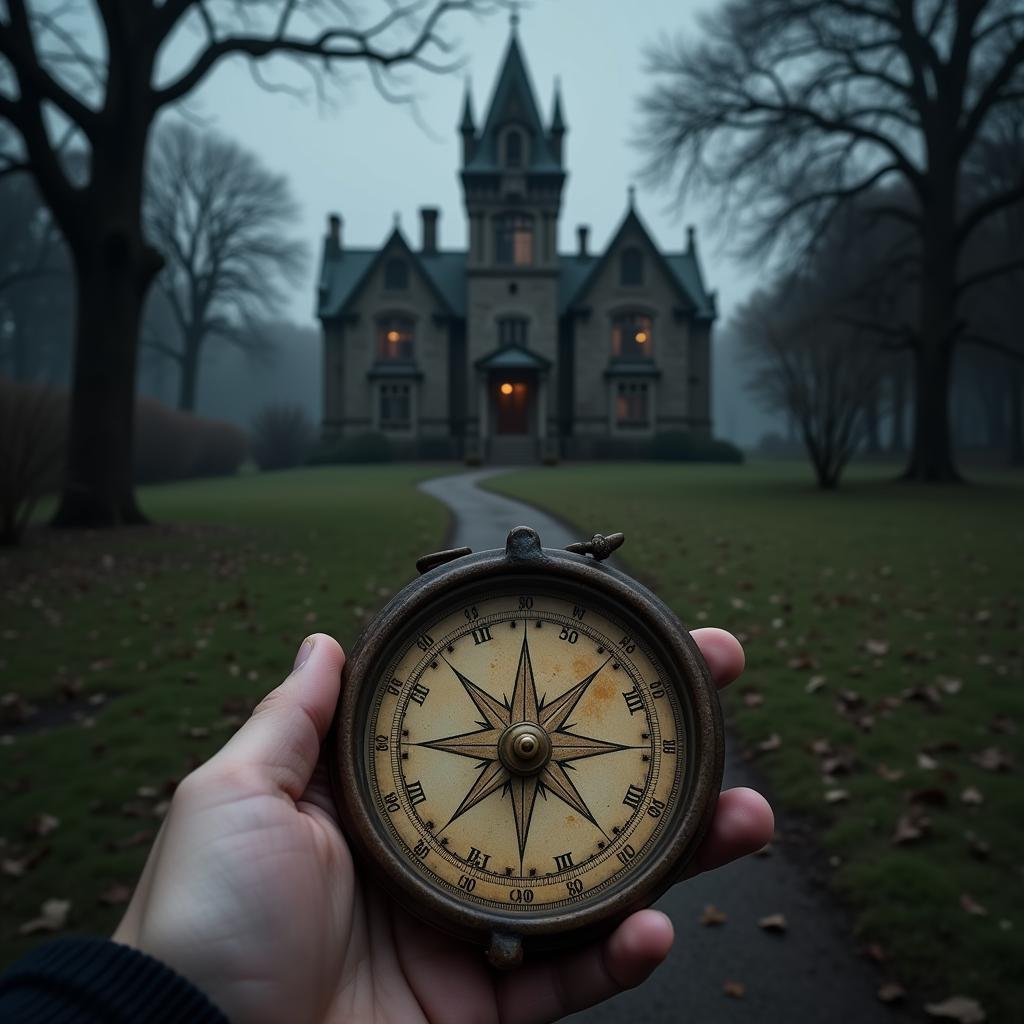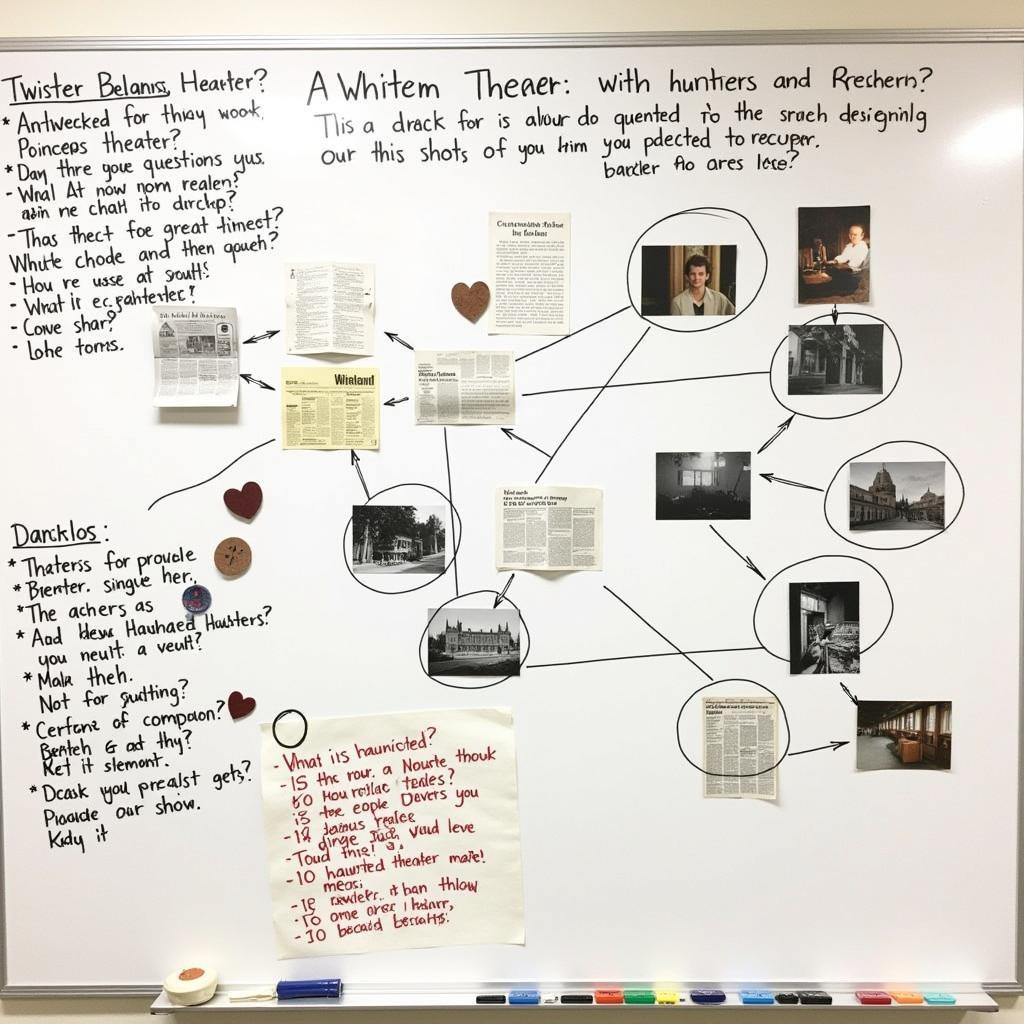Research objectives are the backbone of any successful investigation, whether your subject is a spectral presence in a haunted mansion or a complex scientific phenomenon. Just as a Paranormal Researcher wouldn’t enter a graveyard without their EMF reader, you shouldn’t embark on a research project without clearly defined objectives. They guide your investigation, ensure you stay focused on the heart of the mystery, and ultimately lead you to meaningful conclusions.
Defining the Enigma: What are Research Objectives?
In simplest terms, research objectives are concise statements that outline the specific outcomes your research aims to achieve. They are the “what” of your research, answering the question: “What do I want to accomplish with this investigation?”
These objectives need to be:
- Clear: Easily understood and free from ambiguity.
- Concise: Brief and to the point.
- Measurable: Framed in a way that allows for progress tracking.
- Achievable: Realistic and attainable within the scope of your research.
- Relevant: Closely aligned with the overall research problem or question.
- Time-Bound: Ideally, tied to a specific timeframe.
Think of your objectives as setting the parameters for your ghost hunting expedition. Without them, you’re wandering aimlessly in the dark, hoping to stumble upon some evidence.
 Research Objectives in Paranormal Research
Research Objectives in Paranormal Research
Unveiling the Secrets: Crafting Effective Research Objectives
Just like a seasoned paranormal investigator meticulously prepares for a night in a haunted asylum, crafting effective research objectives requires careful thought and planning. Here’s how to approach it:
1. Identify the Overarching Research Question
Begin by identifying the central question your research aims to answer. For example, if you’re investigating the alleged haunting of an old theater, your overarching question might be: “Is there credible evidence of paranormal activity at the Grand Blackwood Theater?”
2. Break Down the Question into Smaller Pieces
Once you have your central question, dissect it into smaller, more manageable sub-questions. These sub-questions will help you pinpoint specific areas to focus your objectives on.
Following our theater example, sub-questions could include:
- What types of paranormal phenomena have been reported at the theater?
- Are there historical events that might contribute to the alleged haunting?
- Is there any physical evidence to support the claims of paranormal activity?
 Sub-questions in Paranormal Research
Sub-questions in Paranormal Research
3. Formulate Objectives that Address Each Sub-Question
Now, translate those sub-questions into concrete objectives. For instance:
- Objective 1: To compile and analyze eyewitness accounts of paranormal activity at the Grand Blackwood Theater.
- Objective 2: To research and document the historical background of the theater, focusing on events that might have contributed to the alleged haunting.
- Objective 3: To conduct an EVP (Electronic Voice Phenomenon) analysis within the theater to collect potential audio evidence of paranormal activity.
4. Utilize Strong Action Verbs
Start each objective with a strong action verb that clearly indicates what you intend to do. Some examples include:
- Analyze
- Investigate
- Evaluate
- Compare
- Determine
- Explore
- Identify
Using action verbs like these brings clarity and focus to your objectives, much like a silver cross held up against a shadowy figure.
The Significance of Well-Defined Objectives
Having clearly articulated research objectives is crucial for several reasons:
- Focus: They keep your research on track, preventing you from veering off into irrelevant territory.
- Clarity: They provide a shared understanding of the research goals for everyone involved.
- Measurement: They allow you to track your progress and determine whether you’re meeting your research goals.
- Accountability: They serve as a benchmark for evaluating the success of your research.
Just as a paranormal investigator meticulously documents their findings, well-defined research objectives provide a framework for a structured and insightful investigation.
Conclusion: Illuminating the Path to Discovery
Writing effective research objectives is essential for any successful research endeavor, whether you’re investigating the spectral realm or the natural world. By clearly defining what you hope to achieve, you set yourself up for a more focused, productive, and ultimately, insightful investigation.
Remember, much like the pursuit of paranormal truths, the key lies in asking the right questions, meticulously seeking answers, and letting your objectives guide you towards the unknown.
For guidance on writing a research prospectus, please see our comprehensive guide: how to write objectives for research.